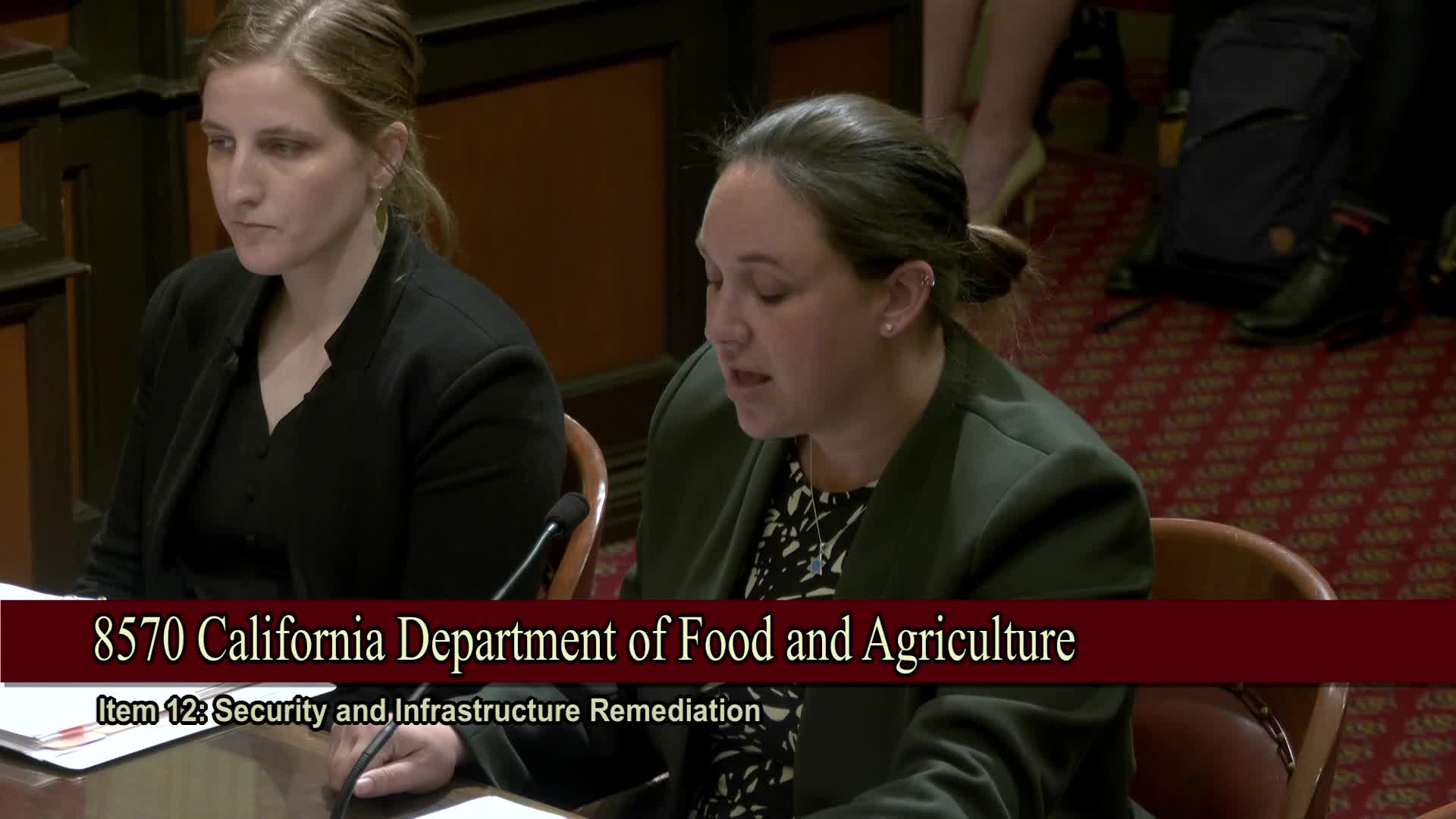Article not found
This article is no longer available. But don't worry—we've gathered other articles that discuss the same topic.
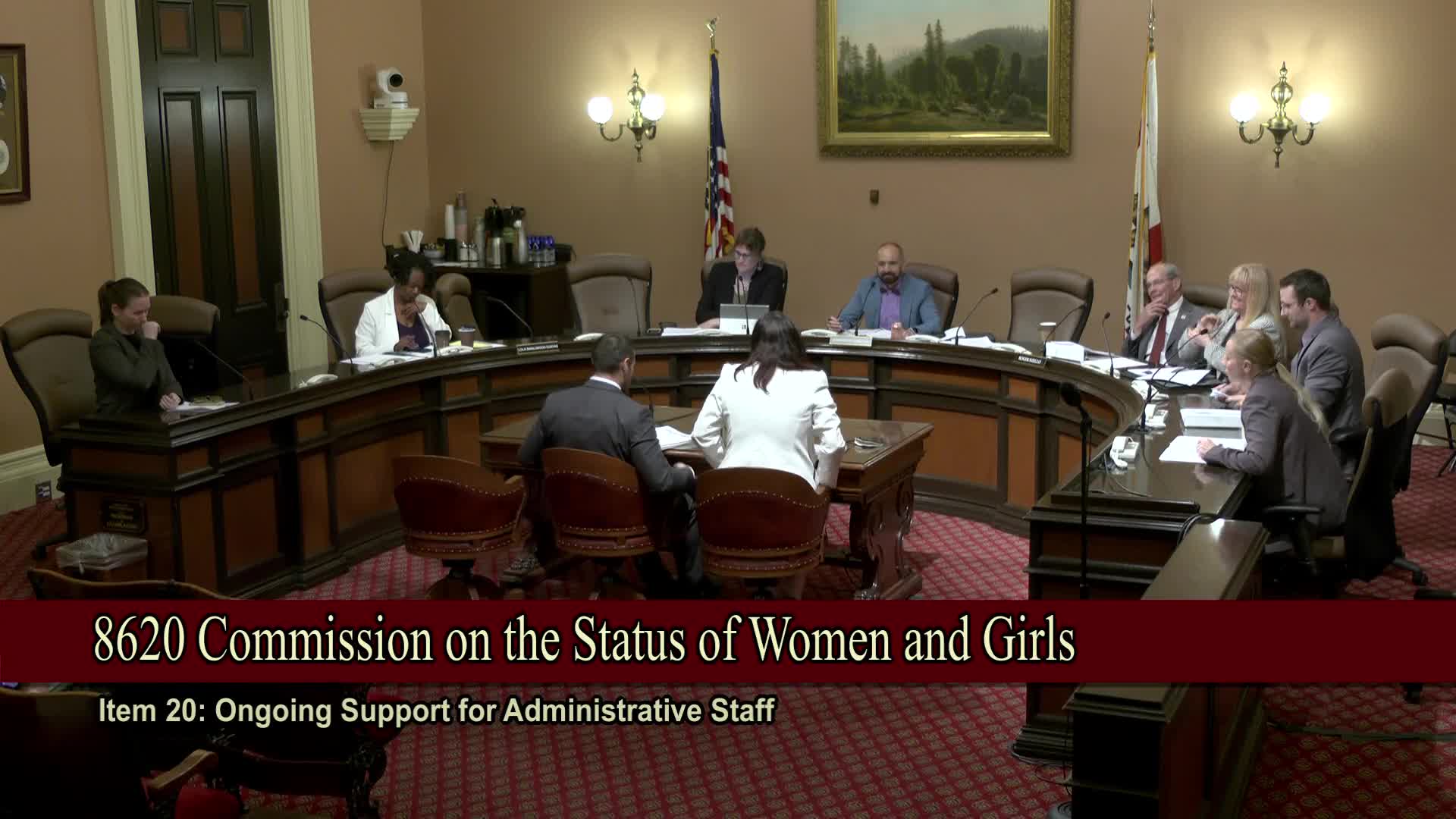
Science Center’s new Air & Space Center near completion; state funding requested to maintain building but opening requires additional resources
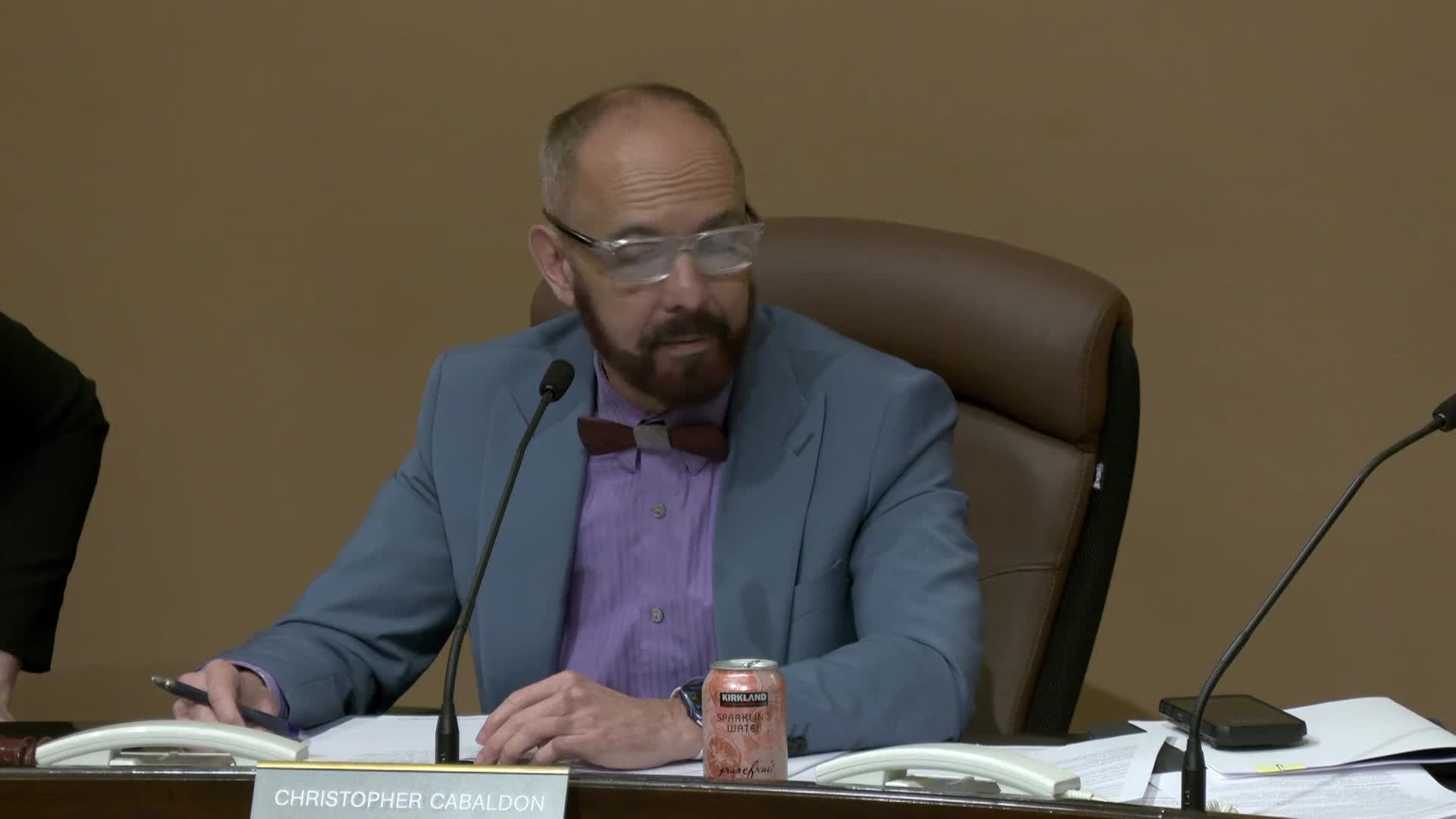
Arts council seeks a permanent HR position; advocates press for restored grants and cultural‑district expansion
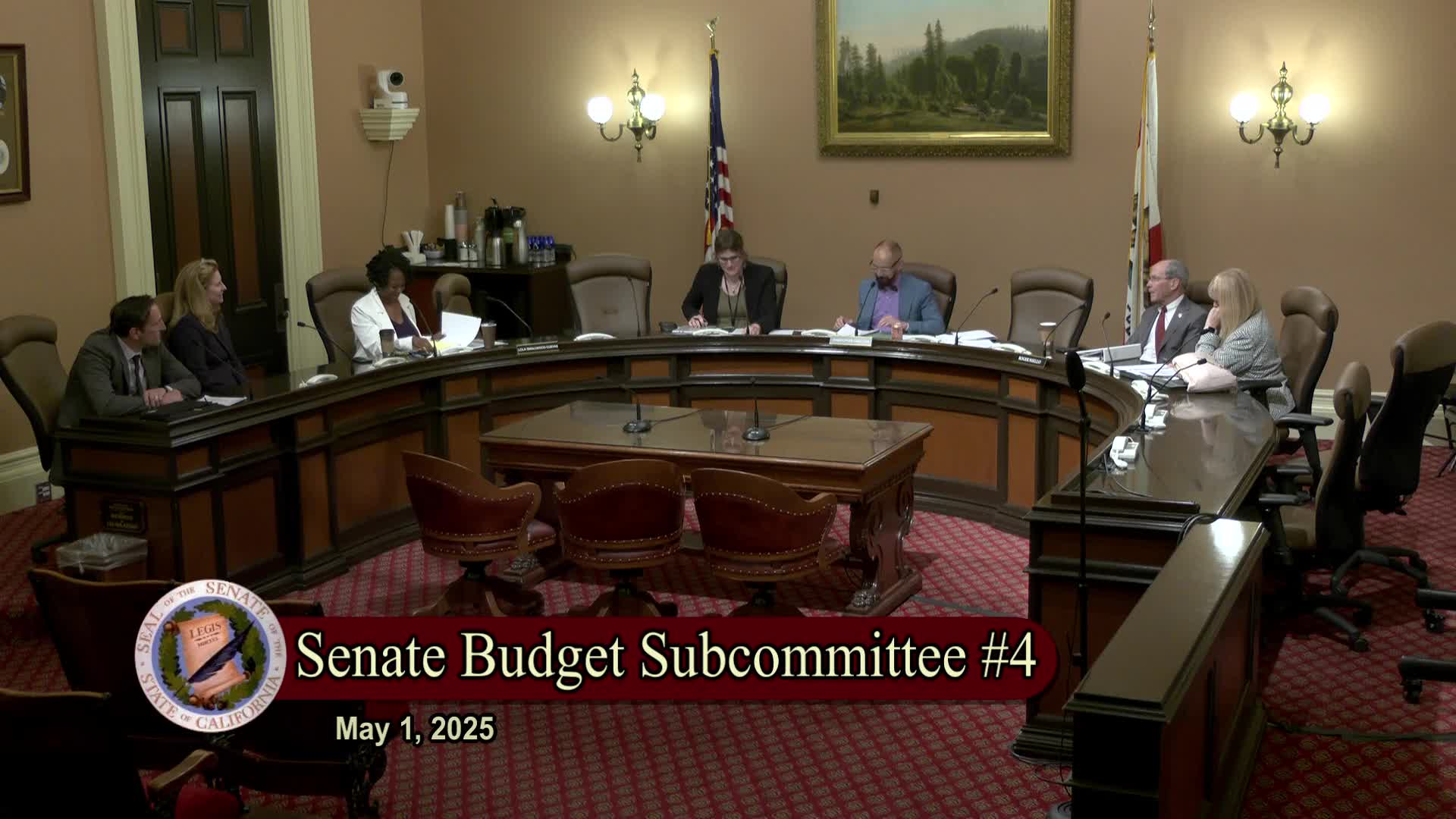
Subcommittee approves vote‑only calendar items 1–11 on unanimous roll call
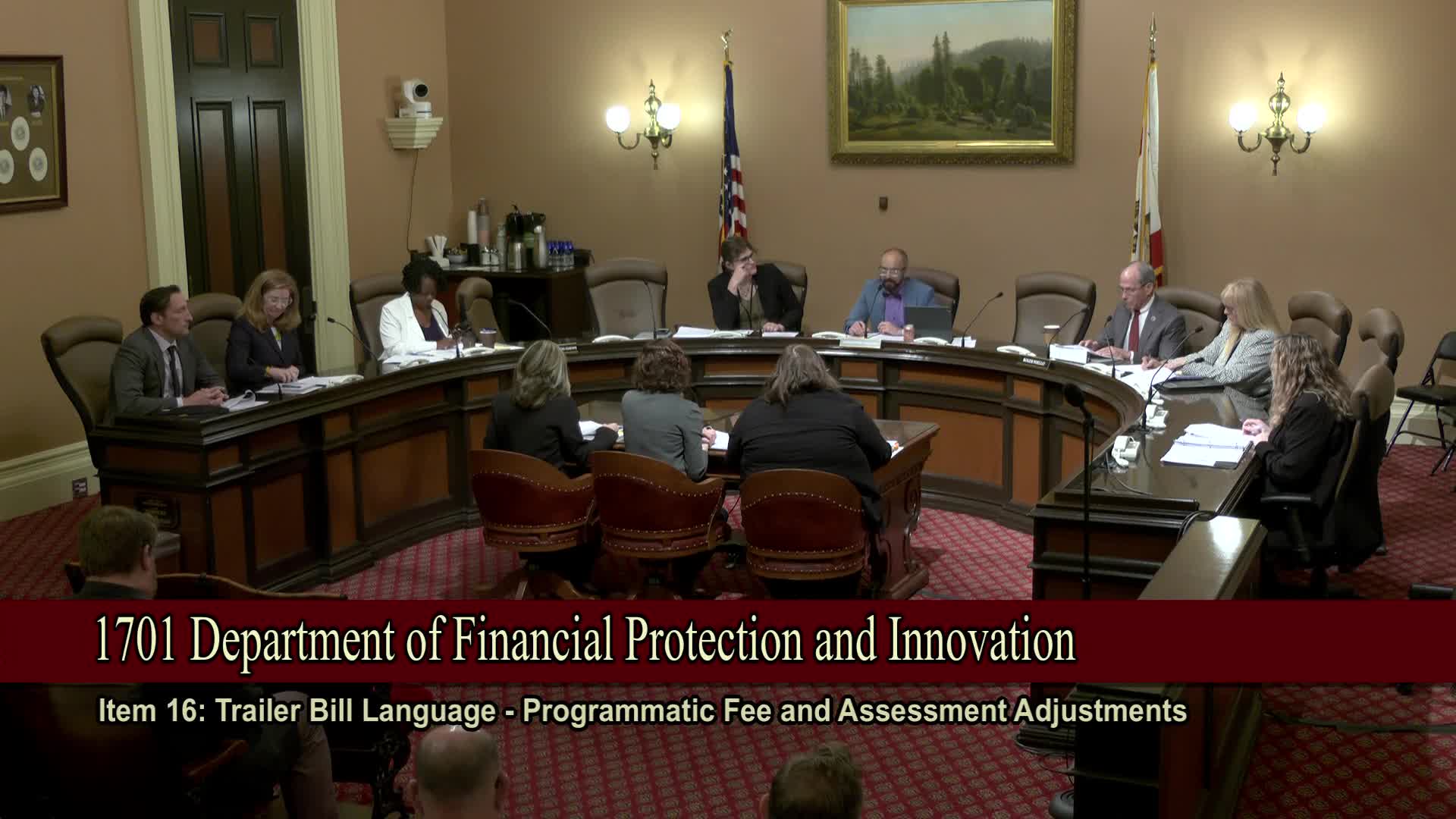
DFPI seeks fee increases after multi‑year shortfall; LAO urges temporary review, regulated industries press for details
